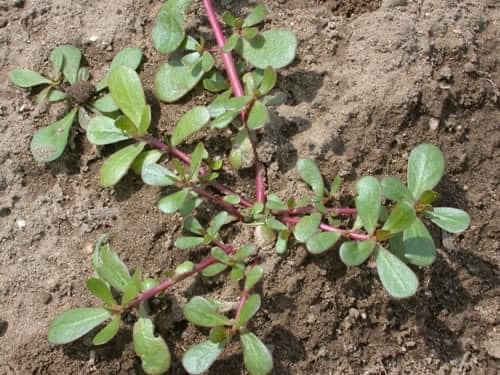This Plant Invades Your Garden; Learn About Its Medicinal Applications
While many gardeners find it frustrating when invasive plants take over their garden spaces, some of these so-called “weeds” may have unexpected benefits. One such plant that often invades gardens is nettle (Urtica dioica). Often regarded as a nuisance, nettle is much more than just an irritating weed. In fact, it has a long history of use in traditional medicine due to its impressive array of health benefits.
In this article, we will explore the medicinal properties of nettle and how you can make use of this commonly found plant to improve your health.
What Is Nettle and Why Does It Invade Your Garden?
Nettle is a hardy perennial plant that thrives in damp, fertile soils, which is why it often appears in gardens, especially near water sources or in areas that are not well-maintained. Known for its stinging hairs, nettle can cause a sharp, irritating sensation when touched. Despite this, the plant has been used for centuries in herbal medicine, and its leaves, stems, and roots are valued for their therapeutic properties.
If you have nettle growing in your garden, consider it a natural remedy that has been passed down through generations. While it can spread rapidly and be difficult to manage, learning about its medicinal applications may encourage you to embrace this garden invader rather than fight it.
Medicinal Applications of Nettle
Nettle has a wide range of health benefits, and its uses span across various cultures. From traditional folk remedies to modern-day herbal treatments, this plant is known for its healing properties. Let’s take a closer look at how nettle can benefit your health.
1. Anti-Inflammatory Properties
One of the most notable benefits of nettle is its anti-inflammatory effect. Nettle contains compounds that can help reduce inflammation in the body, which can be particularly useful for people suffering from conditions like arthritis or joint pain. Nettle has been shown to decrease pain and swelling, making it a natural alternative to pharmaceutical anti-inflammatory drugs.
- How to use it: Nettle leaves can be made into a tea, or you can apply a nettle extract topically to reduce inflammation in affected areas.
2. Rich in Nutrients
Nettle is a nutritional powerhouse, rich in vitamins and minerals such as vitamin C, vitamin K, iron, calcium, magnesium, and potassium. These nutrients support overall health, boost the immune system, improve bone health, and support healthy red blood cell production.
- How to use it: You can consume nettle as a tea, in smoothies, or even add the leaves to soups and stews for an extra nutritional boost.
3. Supports Urinary Health
Nettle has long been used to support urinary health, particularly for men dealing with benign prostatic hyperplasia (BPH), a non-cancerous enlargement of the prostate gland. Nettle root extract has been shown to help reduce urinary symptoms associated with BPH, such as frequent urination and difficulty urinating.
- How to use it: Nettle root extract or tea can be consumed to support prostate and urinary tract health.
4. Helps with Hay Fever and Allergies
Nettle has been shown to have natural antihistamine properties, making it an effective treatment for seasonal allergies, including hay fever. It can help reduce sneezing, itching, and watery eyes associated with pollen allergies.
- How to use it: Nettle tea or capsules can help alleviate allergy symptoms. Be sure to consult a healthcare professional before using it as an allergy treatment.
5. Supports Healthy Hair and Skin
Nettle is often included in natural hair and skincare products due to its ability to improve hair growth and skin health. The high silica content in nettle helps strengthen hair and prevent hair loss. It also helps treat conditions like dandruff and eczema by reducing inflammation and promoting healing.
- How to use it: You can apply nettle extract to the scalp or use nettle oil for a nourishing hair treatment. Nettle-infused water can also be used as a skin rinse to help soothe irritation.
6. Aids in Detoxification
Nettle is known for its detoxifying properties. It helps cleanse the liver and kidneys, promoting the removal of toxins from the body. This makes it useful for people looking to improve their digestive health or support a detox regimen.
- How to use it: Nettle tea is a simple and effective way to enjoy its detoxifying benefits. Drink it regularly to promote kidney and liver health.
How to Harvest and Use Nettle from Your Garden
If you’re fortunate enough to have nettle growing in your garden, there are a few tips to keep in mind when harvesting it:
- Wear Gloves: The stinging hairs on nettle can cause irritation, so be sure to wear gloves when handling the plant.
- Harvest Young Leaves: The young, tender leaves of the plant are the most beneficial for medicinal use. Older leaves can be tough and less potent.
- Drying and Storage: After harvesting, you can dry the nettle leaves in a cool, dry place. Dried nettle can be used in teas or powdered for other uses.
- Use in Recipes: Add fresh or dried nettle leaves to soups, smoothies, or teas for an easy way to incorporate it into your diet.
Conclusion
While nettle may initially seem like an unwelcome visitor to your garden, it offers a wide array of medicinal applications that can significantly improve your health. From reducing inflammation to supporting urinary health and promoting healthy hair, nettle is a versatile and powerful herb that should not be overlooked. So, next time you see nettle in your garden, don’t rush to remove it—consider harnessing its healing properties to enhance your wellness.
If you found this article helpful, please share it with your friends and family, and don’t forget to like and subscribe for more tips on natural remedies and healthy living! Your support helps us spread the word about the amazing benefits of plants like nettle!
